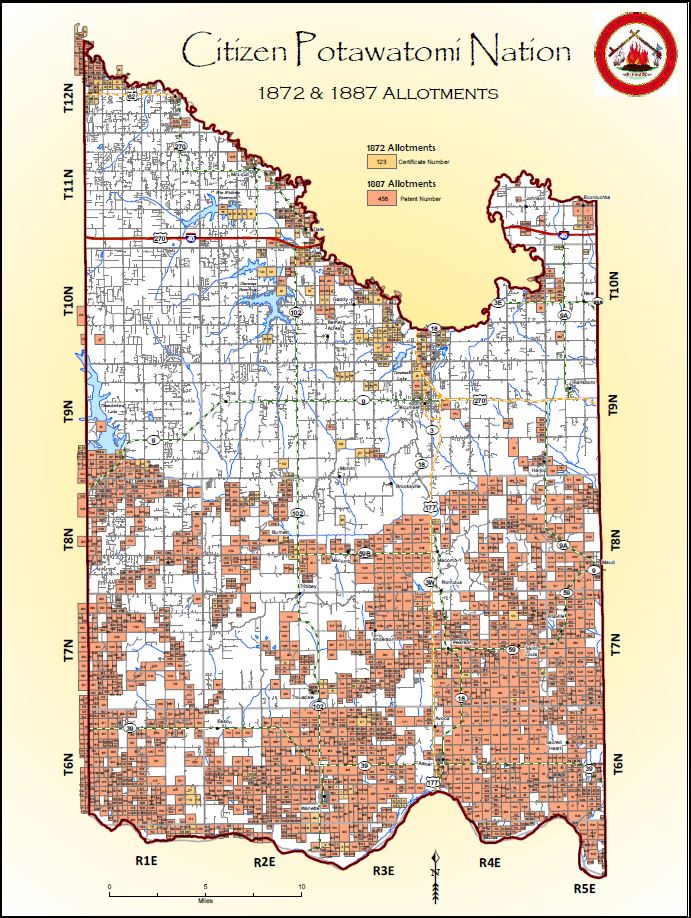Allotment
Allotment was a process by which reservation lands held in common by a tribal community were split up and allotted to individual tribal members. The purpose of allotment, as with the 1861 treaty signed by the Potawatomi and the Dawes Act of 1887, was to undermine the legitimacy of tribal governments and open Native land to white settlement. This was done through allotting land to individual Indian families, having the ability to either keep or “alienate” the land by selling it. This eventually led to the checkerboard effect present today, with land inside the historic boundaries of the Citizen Potawatomi Nation held by CPN members and non-Indians alike.
Through the Dawes Act, and several subsequent Dawes commissions, much of Indian Territory was allotted, with a significant portion of allotted lands transferred to white ownership in just a few years. Allotment effectively dissolved tribal governments, as members were forced to abandon properties taken over by non-Indians, leading to a dramatic decline in tribal sovereignty and acreage.
Potawatomi Allotment Events:
- Potawatomi Treaty of 1861: Split up Kansas reservation into allotments, making those who chose allotment “Citizens” of the United States and forming the Citizen Potawatomi Nation as a distinct community.
- Potawatomi Treaty of 1867: Once again allotted lands to the Potawatomi in Oklahoma to assist the destitute Citizen Potawatomi left reeling from the ill-effects of the 1861 treaty.
- Dawes Act of 1887: Opened the lands that Potawatomi held claim to, but were unable to physically occupy because of the high cost of moving from Kansas to Oklahoma.
Citations
Law:
Books/Articles:
- Edmunds, R. David. The Potawatomis, Keepers of the Fire. Norman: University of Oklahoma Press, 1989.
- Mosteller, Kelli. 2013. Place, Politics, and Property: Negotiating Allotment for the Citizen Potawatomi, 1861 – 1891
- Kappler, Charles J. 1904. Indian Affairs: Laws and Treaties, II. (hyperlink): https://dc.library.okstate.edu/digital/collection/kapplers
- Prucha, Francis Paul. The Great Father: The United States Government and the American Indians. University of Nebraska Press, 1995.
- Wardell, Morris L., and Edward Everett Dale. History of Oklahoma, by Edward Everett Dale … and Morris L. Wardell. New York: Prentice-Hall, 1948.
- Washburn, Wilcomb. The Assault on Indian Tribalism: The General Allotment Law (Dawes Act) of 1887. Philadelphia: J. B. Lippincott, 1975.

